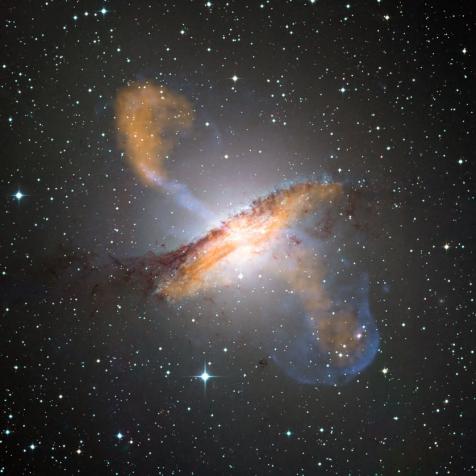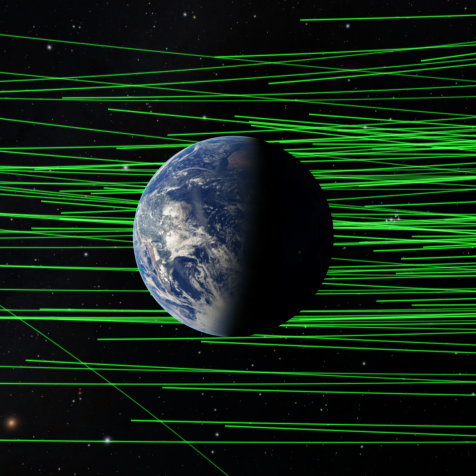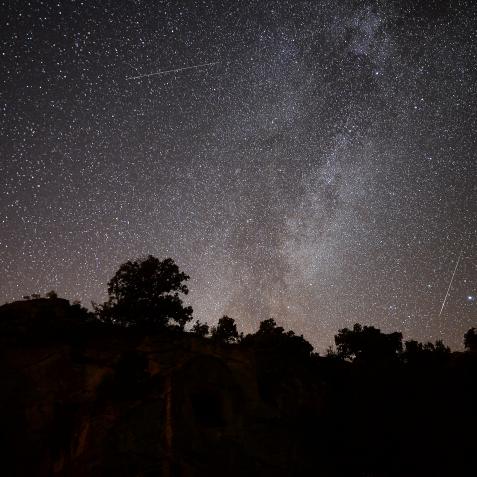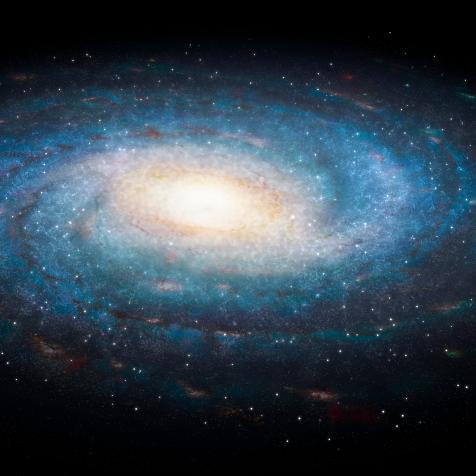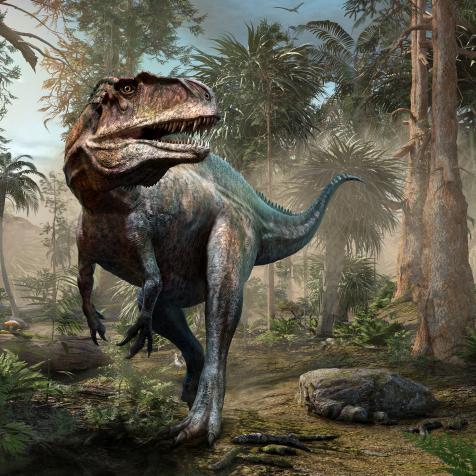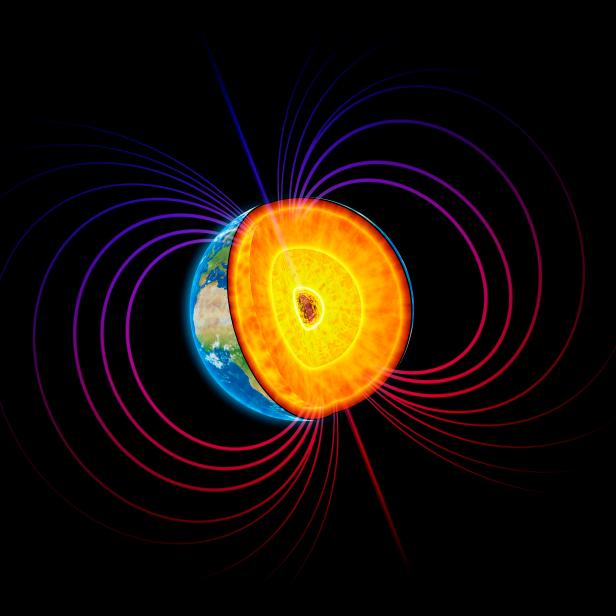
ANDRZEJ WOJCICKI
Something Funky is Happening to the Earth’s Magnetic Field

Recently a weak spot in the Earth's magnetic field over the southern Atlantic Ocean has been getting weaker, which could signal the beginnings of a global magnetic reversal event. Or not. It’s complicated.
The Earth’s magnetic field is a twisted, gnarled, tangle of complex and interleaving loops of magnetic energy. It doesn’t stay still for long. It enjoys a life of ever-changing fluctuations. And recently, a weak spot over the southern Atlantic Ocean has been getting weaker, which could signal the beginnings of a global magnetic reversal event.
True North
If you live in the Northern Hemisphere of the Earth and take out your trusted scouting compass (or just your cell phone), you’ll get an arrow pointing north--this is handy if you’re lost and alone in the woods or trying to find your way to the nearest coffee shop.
But “north” on your compass doesn’t actually point to the geographic North Pole (you know, where Santa Claus lives and all that). Instead, it points in the general direction of the vast arctic plains of Northern Canada. Why? Because that’s where the Earth’s magnetic field is strongest in this part of the world.
And while there are strong parts, there are also weak parts, like the one sitting smack dab in the middle of nowhere in the Atlantic Ocean between South America and Africa. Despite the region’s awesome-sounding name – the South Atlantic Anomaly – there are no aeronautical disappearances or UFO sightings. It’s just a weak spot in the magnetic field.
Weak Spots
But here’s something even more anomalous: that weak spot is getting weaker and splitting in half.
What’s causing this strange shift? To explain, we have to dig deep. As in, literally deep, into the center of our planet. There, our core is a giant ball of super-hot molten iron, spinning ridiculously fast like an out-of-control carnival ride.
That spinning, chaotic core powers the Earth’s magnetic field through what physicists call a “dynamo action”, but we can just settle for “spinning hot things make big magnetic fields”.
So strong spots and hot spots in the magnetic field aren’t due to anything going on around the surface of the Earth, but because of all the crazy, frenetic, complicated activity in the core. This means that by studying the behavior of the Earth’s magnetic field, we can get a glimpse into that same activity in the core. Which is neat, because it’s impossible to drill a 4,000-mile long tunnel and take a look ourselves.
That’s exactly the goal of the Swarm mission satellites by the European Space Agency. By constantly monitoring the magnetic activity, we can get a better sense of what our planet’s core is up to when we’re not looking.
And hence: South Atlantic Anomaly.

Barbara Reichardt / EyeEm
Since 2013, the Anomaly has been getting weaker, and even begun to split into two distinct regions of minimum magnetic energy. Scientists aren’t sure what will happen next. The split could evaporate, with no one the wiser. Or it could become permanent. Or it could be a sign that the entire magnetic field of the Earth is about to pull one of its favorite tricks: completely shutting off and reappearing again, but with the poles reversed.
No matter what, it’s not much of a threat to us surface-bound folks. We have our trusty atmosphere to protect us against any deadly cosmic radiation. But orbiting satellites can run into issues without our magnetic field in place to protect them: already the South Atlantic Anomaly is a place best avoided, as the reduced magnetic protection causes some glitches in the delicate hardware of our satellites.
So if you find yourself smack dab in the middle of the Atlantic ocean, go somewhere else.




































































